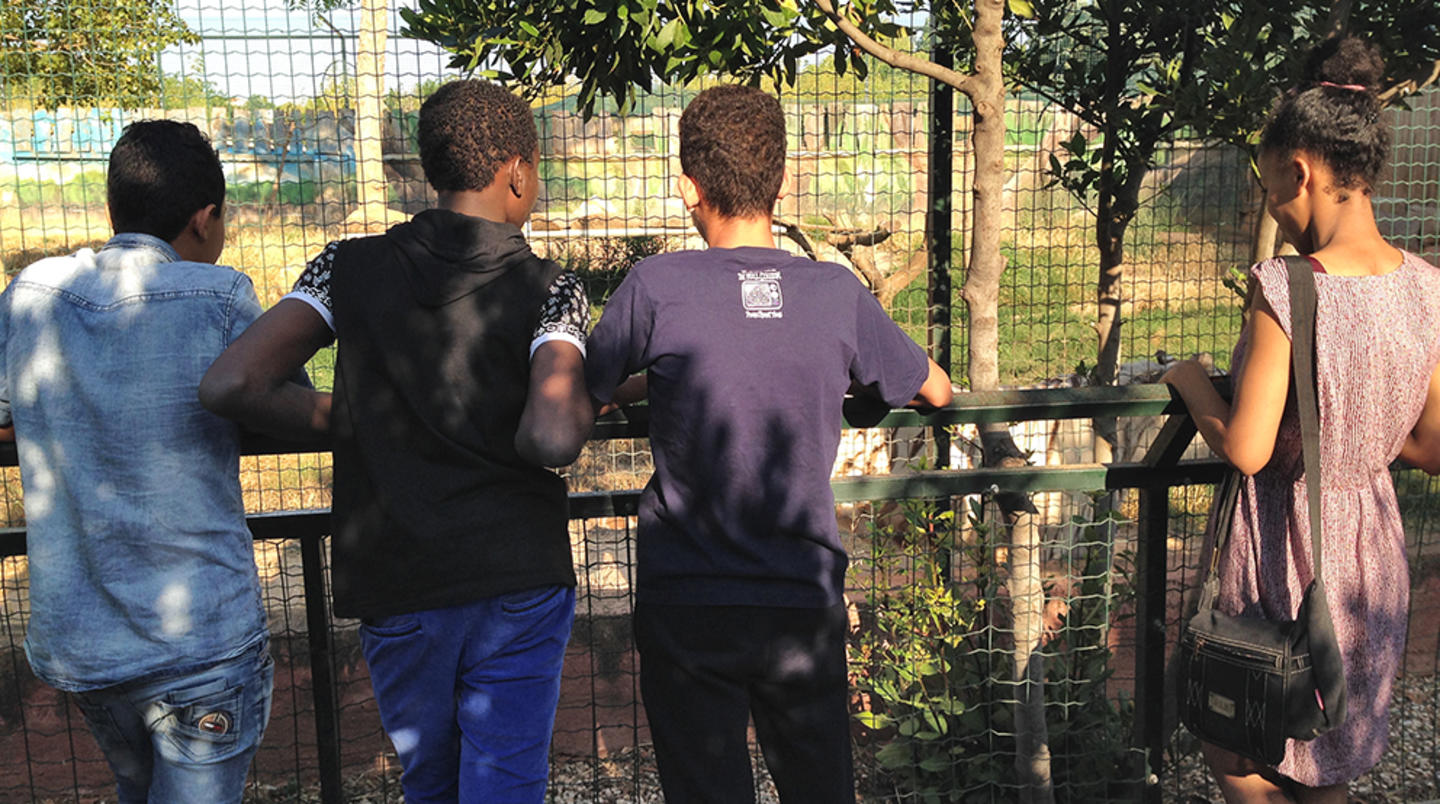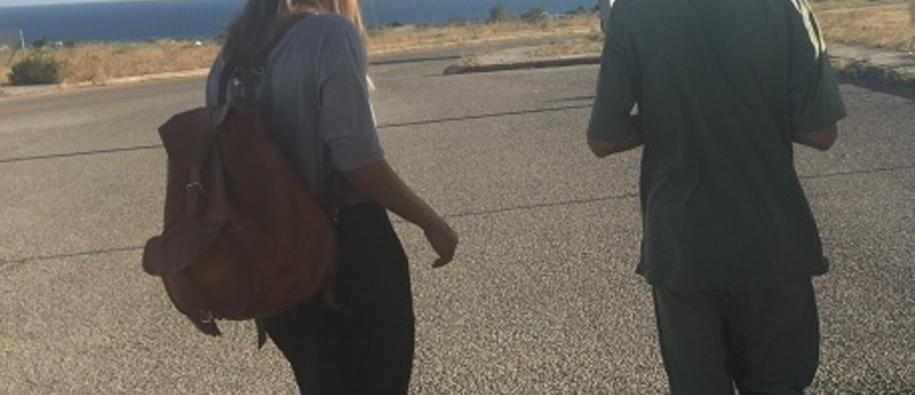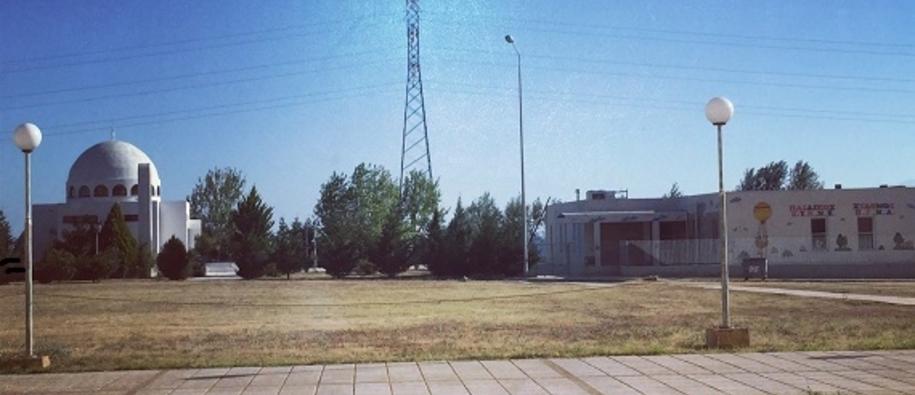Greek NGO METAction (METADRASI) is one of the NGOs on the ground offering support and protection to unaccompanied minors and separated children. With funding from the EEA Grants through the Greek NGO Programme We are all Citizens, METAction has established the 'Network of Guardians for Unaccompanied Minors'.
Sofia Kouvelaki, Programme Officer at the Bodossaki Foundation which operates the NGO Programme, recently visited the Fylakio First Reception Centre in Evros, Northern Greece. She tells the story below of just some of those children and guardians working with the Network that she met.
"When I try to make the children relax, I ask them to close their eyes and imagine their life as they would like it to be in the future. Almost all of them give me the same answer: I am in Germany. I have managed to get my family to join me, I am working and I am studying. I really admire these kids. They are so strong. They are not ordinary children. I just wish I could make them understand that if they had a little patience, they would be able to continue their journey in a safer manner."
These are the words of Iro Goutzidou, member of the Network of Guardians for Unaccompanied Minors. Iro is herself a guardian, responsible for three children, two boys and a girl from Iraq. All three children belong to the Kurdish Yazidi minority – an ethnic group that is currently persecuted in Iraq.
Since its launch in October 2014, the Network has supported 215 minors all over Greece. The guardians act as the children's individual support person and serve as a link between the relevant state authorities and social welfare agencies. Each is responsible for 3 to 5 children aged up to 18 years old.
As part of the project, educational materials have been developed and training for guardians devised and implemented. METAction also benefited from an exchange of know-how and best practice with Norwegian organisation, Vergeforeningen Følgesvennen, which has extensive experience in working with unaccompanied minors. The Norwegian partners have participated in meetings and training workshops in Athens along with NGOs from the Netherlands and Belgium. Two staff from the METAction project team have also visited Norway. As a result of the exchanges, a handbook on good practice in guardianship is to be produced.
"All we have is each other"
Upon arrival at the Fylakio First Reception Centre, we are welcomed by the METAction local interpreters' coordinator and two interpreters. They both speak perfect Greek. Iro joins us a little later, accompanied by a fourteen-year-old girl with a big smile, Sebihe*. She communicates with us with her eyes and the little English she knows and follows us to the METAction office in order to start her session with her guardian.
Sebihe says she's not feeling well. She misses her cousin Ahmed*, who has been transferred to the local hospital in Alexandroupolis with chicken pox symptoms.
"I have not managed to talk to him on the phone. We left home together. We are family and I need to be with him. I'm not strong enough to be alone here. We can't be separated. All we have is each other. When is Ahmed coming back?" she keeps asking.
"I promise that none of you will leave the centre before Ahmed comes back. But once you depart, you will have to be separated in order to be accommodated in youth centres," Iro replies.
All members of the network have been trained to treat the children with fairness and honesty.
"You will go to a shelter for girls and Ahmed will join a shelter for boys, there aren't many mixed facilities."
Sebihe's eyes fill with tears.
We then have to leave for the hospital in Alexandroupolis. We arrive at an overwhelmingly big building with numerous empty rooms. We cross endless corridors and after almost an hour we manage to find Ahmed's room. He is under strict police supervision in a high security area. We have to wait until the interpreter calls us in order to be able to communicate with the boy.
"Habibi Ahmed." We listen to her soft voice.
Ahmed is very upset. He is crying and threatens that if we don't help him leave the hospital and return to Sebihe in the Centre, he will end his life. He feels imprisoned, refuses to eat and seems physically and emotionally exhausted. He claims that the doctor has not yet visited him that day and tells us that he is ready to do anything in order to return back to his cousins even if that means staying in isolation in the Centre.
Iro manages to retain her calm:
"Ahmed, you have been so strong until now. Soon you will be well again and then you will be able to come back to the Centre."
She promises to return the next day with more news about when he can leave.
As we catch the plane back home, Iro's parting words remain engraved in my mind:
"The programme of guardianship has changed the reality of these children in Greece. We want to help them 'take a breath' and allow them to feel empowered and supported to either continue their journey or to stay in Greece in an appropriate social welfare environment."
*The children's names have been changed to protect their identity.
This story was reproduced courtesy of Sofia Kouvelaki, Bodossaki Foundation. It was originally published on the Greek web portal: www.protagon.gr.
Previous stories on this project
Guardians for unaccompanied children
Protecting unaccompanied minors in Greece
More
- In addition to funds for refugees channelled through the NGO programme, Iceland, Liechtenstein and Norway also finance a €20.9 million asylum programme in Greece, implemented in partnership with the Norwegian Directorate of Immigration (UDI).
- The First Reception Centre at Fylakio, Evros mentioned in the article is one of the four reception centres which have received significant support from this EEA Grants programme.


